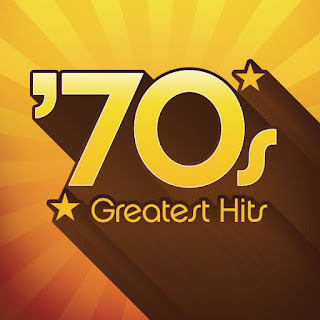The late 1970s were crazy
So, check out the reading next week. You may enjoy the story, but you may also enjoy watching me make a fool out of myself, live, on social media. :)
****
Readers of my book Elm Street have said they especially enjoyed when I detoured from stories to explain what was happening in the world. They also said that using music lyrics helped draw them into the small-town life of the 1960s and early 1970s. I refer to these historical notes and music lyrics as mile-markers.
When my Vicki read through the first draft of Hickory Trail, she said the mile-markers were especially helpful in recalling the late 1970s, when Hickory Trail takes place. Honestly, I had a lot of fun researching and remembering what those times were like on a larger, historical scale.
The cultural revolution of the Vietnam War (1954-1975), washed over every nook and cranny of our country during the late 1970s. Sex, Drugs, and Rock and Roll pushed beyond college campuses and urban centers into small town America, and my small-town America was no different.
Sex. By the late 1970s Playboy magazine had moved into small-town drug stores all across the country. Started as a magazine targeted to single, professional men in big cities, the magazine's circulation reached its zenith in the 1970s when single copy sales reached 7 million copies per issue. Even presidential candidate Jimmy Carter, a Georgia Baptist, was interviewed in Playboy's November 1976 issue.
Drugs. In 1970, laws were passed prohibiting narcotics under the Controlled Substances Act. One year later, President Nixon declared the official "War on Drugs." The federal Drug Administration (DEA) was established in 1973 - the year I was a freshman in high school. By 1975, the illegal drug industry was so profitable people were getting killed because of it.
Rock and Roll. My high school years represented the convergence of popular music. Look at who appeared in the Billboard Top 100 when I was a sophomore-junior in high school: The Four Seasons, Elton John, Bee Gees, Donny Osmond, Diana Ross, Aerosmith, The Beach Boys, Neil Sadaka, Kiss, The Who . . . and freakin Glen Campbell. This list doesn't include anything from Led Zeppelin and Skynyrd's Freebird (which was already three years old). Don't forget Elvis was still performing, too.
The economy was also in the tank. The late 70s came with both high unemployment and high inflation. Even if you had money you couldn't buy anything of value. Politically, things were no better. Vice President Spiro Agnew resigned, and Gerald Ford was appointed vice president. Then in 1974, Nixon resigned over the Watergate Scandal. Ford became president and was the first person to serve as president without being on either a vice presidential or a presidential ballot. Ford then pardoned Nixon. Our government was in free-for-all.
In Hickory Trail, it's against all of this backdrop that Frank Wilcox enters high school in August 1973. He learns to drive, he gets a job at the local newspaper, he dates a black-haired beauty whom he loves but who is not the love of his life, and mostly he finds his sweet spot while never drifting too far from the friends of his childhood. I had so much fun writing it, and I hope you join us on Thursday, March 8 for a chapter.




Comments
Post a Comment